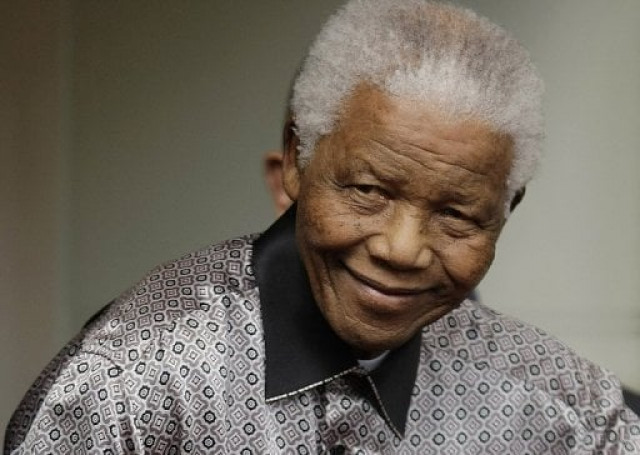Still awaiting the promised land
Few exceptions aside, the majority of people in the former colonies are still losers in the global political economy.

It is hard to escape the feeling that Mandela’s beloved South Africa is better off now in comparison to the apartheid era only insofar as its black majority exercises formal political rule. PHOTO:AFP

It is, therefore, extremely apt that freedom-loving peoples around the world come together to honour Mandela’s legacy. Yet, even while the tributes pour in, it is hard to escape the feeling that Mandela’s beloved South Africa is better off now in comparison to the apartheid era only insofar as its black majority exercises formal political rule. South Africa remains one of the most unequal countries in the world and, perhaps most tellingly, economic and cultural power continues to reside in the hands of white South Africans.
South Africa’s story is not an exceptional one. The European colonial empires in Asia and Africa that started to crumble with the departure of the British from the Indian subcontinent in 1947 may now be a relic of history, but ‘neo-colonialism’ continues to ravage large parts of the world. A handful of exceptions aside, the majority of people in the former colonies are still losers in the global political economy. The structural violence against the poor and dispossessed is double-fold; on the one hand they are exploited by the forces of world capitalism while on the other, class, patriarchial and ethnic domination within society is still deeply entrenched.
It is a little known fact that Mandela’s African National Congress (ANC) was committed to the socialist transformation of South Africa, at least until it came to power in the middle of the 1990s. Indeed, the end of the Cold War compelled many erstwhile revolutionaries to dramatically change their political postures. In bidding farewell to the man South Africans affectionately called ‘Madiba’, we should sombrely ask whether or not the genuine freedoms for which he struggled his whole life remain a pipe dream for ordinary South Africans, and the millions more like them all over the post-colonial world.
Published in The Express Tribune, December 7th, 2013.
Like Opinion & Editorial on Facebook, follow @ETOpEd on Twitter to receive all updates on all our daily pieces.















COMMENTS
Comments are moderated and generally will be posted if they are on-topic and not abusive.
For more information, please see our Comments FAQ